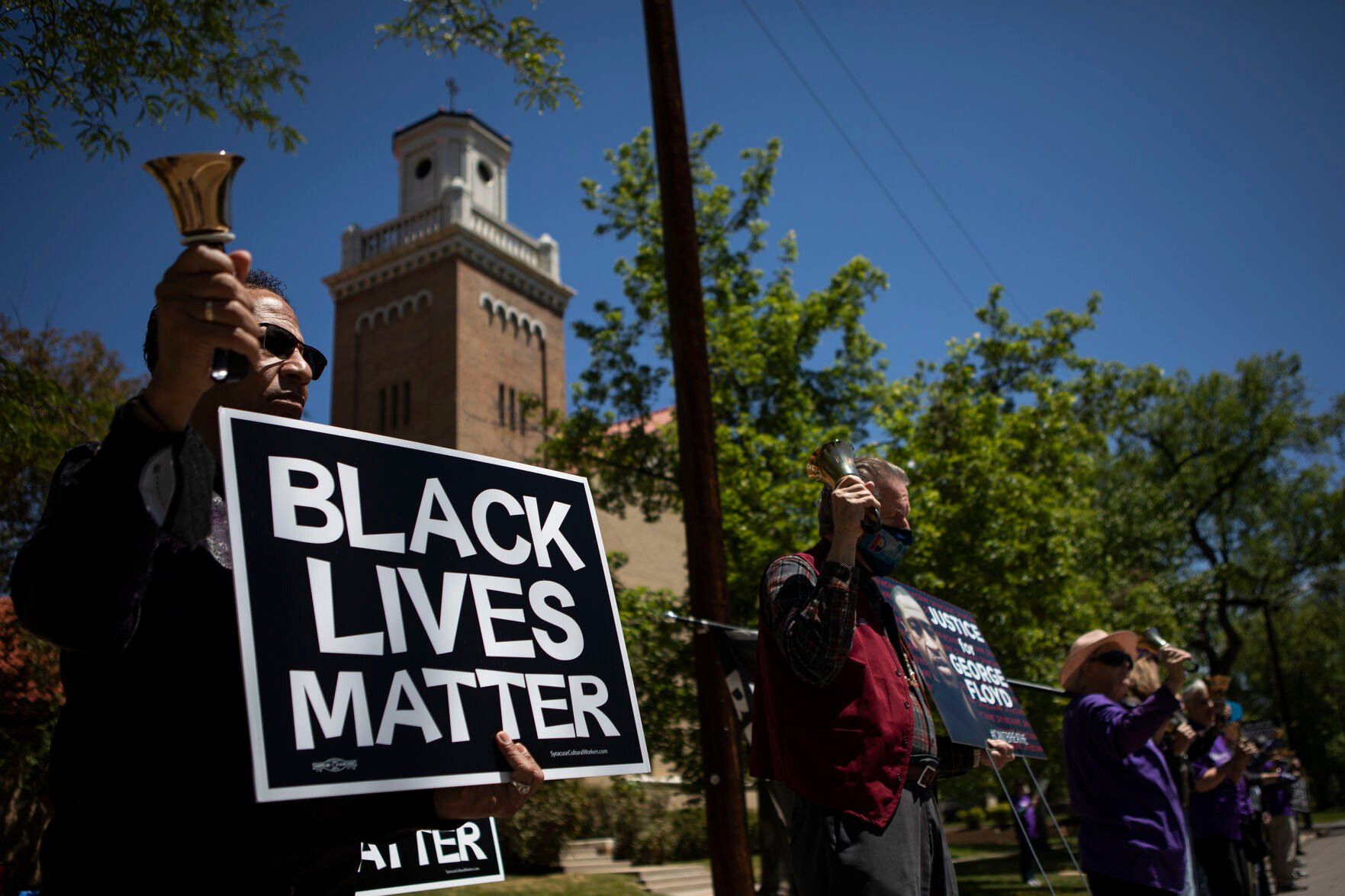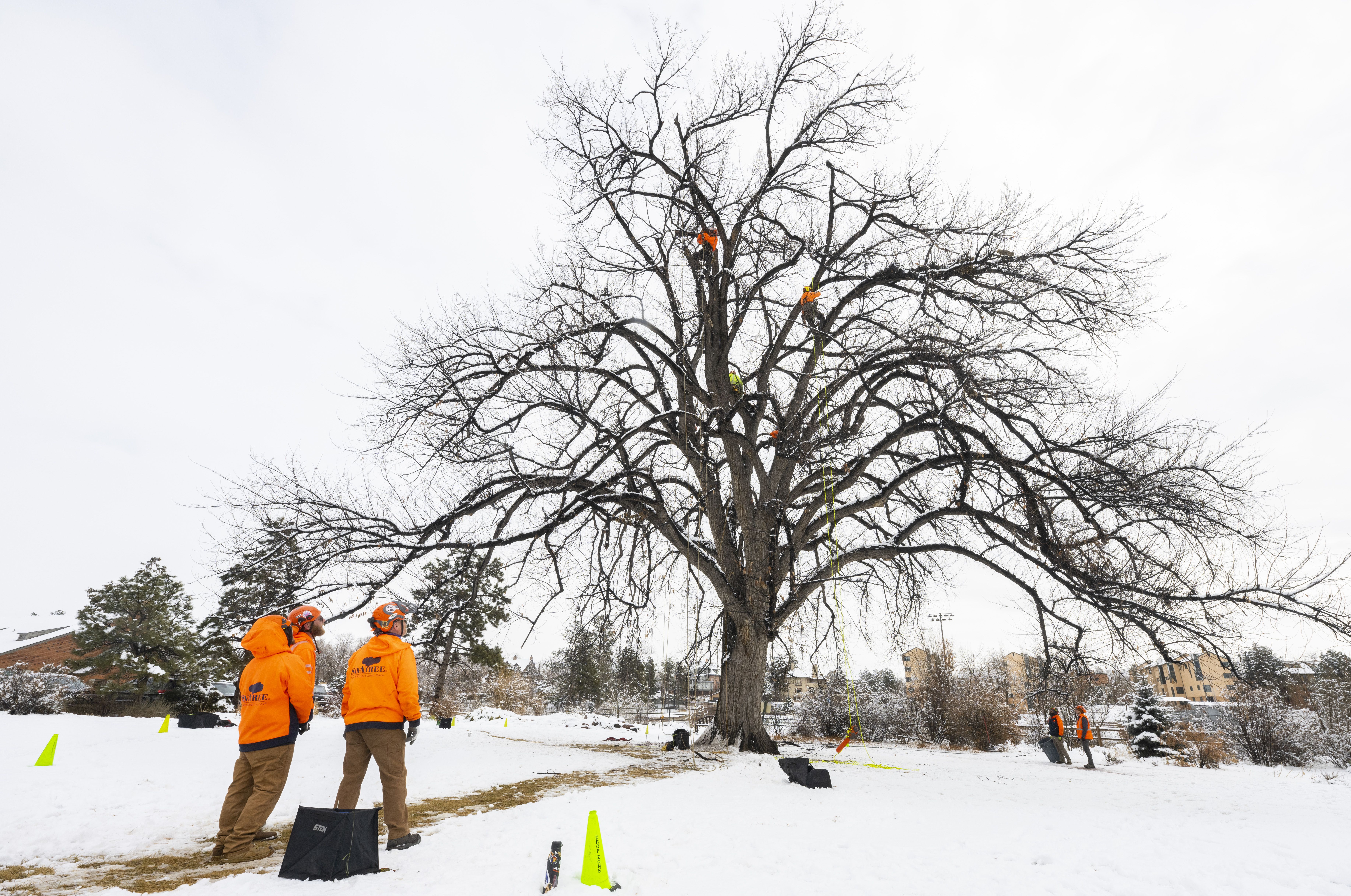Why Denver Mayor Mike Johnston prefers to talk about work authorization, not border security | ANALYSIS
In pushing for federal action on illegal immigration, Denver Mayor Mike Johnston often pleads for three specific responses from Congress and the Biden administration — more funding for cities grappling with the crisis, work authorization and a “coordinated entry program.”
The mayor notably stays clear of talking about “border security,” an omission that serves to underscore the ideological lenses with which Democrats and Republicans view the border crisis.
Both sides agree that America’s immigration system is “broken” and cite the fiscal burden on taxpayers. But, broadly speaking, Democrats often focus on what to do with the millions of immigrants who are already in the country illegally, such as by offering them a path to legalization, while Republicans insist that border security, including erecting border walls and deporting immigrants in the country illegally, is paramount.
Republicans and Democrats have tried time and again to “fix” the border crisis, but they have perennially failed to agree on a comprehensive solution, and neither Republican nor Democratic occupants of the White House have been able to stop the flow of immigrants crossing the border, though Donald Trump’s presidency pushed for tougher policies.
Nowhere is this ideological superstructure clearer than the Denver mayor’s plea for help as the crisis threatens to cripple his city’s budget, while Republicans bemoan the fiscal costs of the “unrestricted flow” of people from across the border.
“Denver, like many cities in America, is a vibrant, thriving city full of generous folks who want to see everyone succeed,” Johnston said at a press briefing earlier at the U.S. Capitol, where Colorado’s Democratic congressional delegates endorsed his proposed solutions.
“We are also a city right now that is facing a humanitarian crisis and a fiscal crisis unlike anything we’ve seen in the last 25 years. And that is the result of what we know is the ongoing influx of migrant arrivals who are seeking asylum in America and the system that is not adequately helping them to succeed,” Johnston added.
By comparison, U.S. Rep. Ken Buck blames the crisis on the Biden administration and notes that the border “isn’t secure.”
“Healthcare, transportation, and housing are not free in Colorado — unless you’re an immigrant,” Buck said on X, the social media platform.
“Taxpaying Coloradans cannot continue to shoulder the costs of Biden’s border crisis while the tax burden and cost of living in America continues to skyrocket,” he added.
What is Johnston’s ‘coordinated entry’ plan?
After weathering yet another surge of immigrants, Johnston warned earlier this month that, without the crisis abating, the city could spend up to $180 million on the humanitarian response this year alone. He has already instructed department heads to find 10% to 15% in cuts.
Early in the crisis, city leadership decided to shoulder the responsibility and expense to temporarily house, feed and transport the immigrants who illegally crossed the southern border and ended up in Denver.
The vast majority of individuals that have crossed the southern border are technically “inadmissible” under the country’s immigration laws, and many are “paroled” into the U.S. Individuals who are “paroled” have not been formally admitted into the U.S. for purposes of immigration laws — as opposed to people who are “admissible,” such as those who obtained a green card and work visas — but they can stay in the U.S. for a specific period.
A Denver spokesperson said in order to gain access to city shelters, an immigrant must have an alien registration number. The spokesperson said this ensures federal compliance, which also assures federal reimbursement for the city’s expenses.
A councilmember earlier told The Denver Gazette that nearly all of the immigrants who received city services have an alien number. But some contend it’s a matter of semantics, and that, for all intents and purposes, the individuals who crossed the border and arrived in cities, such as Denver, illegally crossed the border because they failed to go through the proper channels to be admitted into the U.S.
Historically, immigrants have favored traditional gateway cities, such as Chicago, Los Angeles and New York. But over the past 13 months, Denver saw nearly 38,000 immigrants.
Under pressure to ease the burden on his city, Johnston has gone on a press tour to push for his preferred solutions, chief of which is work authorization.
“What’s critical for us is that folks that arrive, arrive with work authorization because we know everyone wants to work,” Johnston told the Washington Examiner last week. “They want to support themselves. They don’t need to be on the taxpayer dime. If folks arrive in our city with the capacity to work, then we can help them succeed.”
The Denver mayor also seeks a “coordinated entry plan.”
A spokesperson said that means helping people settle into communities “once they cross the border, are processed, and admitted into the U.S. with an Alien Registration Number and court date.”
“Rather than having a governor send migrants on buses to cities without notification, Mayor Johnston is advocating for a more coordinated system,” Jordan Fuja, the mayor’s press secretary, told The Denver Gazette.
“That means the federal government works with border communities and other cities across the country to coordinate where migrants go once they are admitted into the country. Instead of one state and a handful of cities managing this crisis alone, a coordinated entry system would help distribute this population across cities that can absorb the population more efficiently,” Fuja said.
Fuja also underscored Johnston’s view that the strategy would only work if people receive work authorization “as soon as they are admitted to the country, which is why he has been pushing the federal government to expand work authorization.”
Johnston’s breaking point
As the border crisis spilled into Denver, Johnston has embraced the role of de facto spokesperson for interior cities grappling with the tens of thousands of immigrants the local governments have fed, housed and transported.
Johnston does not specifically talk about stopping the flow of immigrants into Denver. Instead, the mayor, now with a bigger national platform, wants strategies to ease the burden on his city.
Immigration is the sole purview of the federal government, so local officials can only exert pressure on the federal government to act, though the kind of pressure they apply and the solutions they seek depend to some extent on their political leanings.
Johnston has warned councilmembers that the city has reached a breaking point and told his agency heads to look for budget cuts in anticipation of the spending ahead.
The mayor also said that, if the current influx of immigrants persists, the city could be spending $180 million this year.
In choosing not to focus on “securing” the border, Johnston espouses the traditional Democratic position on illegal immigration.
His administration insists that he is focused on a pragmatic matter — the immigrants are in Denver and the city needs help.
“The mayor’s first priority is managing the city and supporting individuals who are here,” Fuja said. “That’s why he has relentlessly advocated for the solutions that will alleviate the burden Denver has been under, including expanded work authorization, increased federal funding, and coordinated entry.”
The contrast in the position across the ideological aisle is palpable. Republicans argue that the Biden regime is negligent in securing America’s southern border.
“There are still some people who try to deny the fact that Joe Biden is opening America’s borders fully,” U.S. Rep. Lauren Boebert said on X on Friday. “If he doesn’t have a policy of open borders, why is he literally suing states who try to enforce the border laws on the books and stop the invasion?”
Boebert is referring to the escalating feud between Texas and the Biden administration over immigration enforcement, which showed no signs of easing as federal officials renewed demands for the state to give Border Patrol agents access to a riverfront park that is a popular corridor for migrants illegally entering the U.S.
Texas, which has installed rows of razor wire in the park, said more is being added after the U.S. Supreme Court cleared the way for Border Patrol agents to cut or remove the sharp metal barrier. The fencing has become one of Abbott’s most visible measures to deter migrants in the border city of Eagle Pass.
More than two dozen Republican governors from across the country said they stand by Abbott, accusing the Biden administration of “(leaving) Americans and our country completely vulnerable to unprecedented illegal immigration pouring across the Southern border.”
What Boebert expressed and Johnston espoused illustrate some of the philosophical gulf dividing the two parties — and which Biden and Congress must somehow find a way to bridge if they were to pass a comprehensive immigration measure.
In D.C., the parties are negotiating a proposal that, according to one negotiator, would tighten asylum access, increase U.S. Border Patrol agents and asylum officers, detain and deport more immigrants and restrict migrant releases into the U.S.
Biden offered fresh assurances on Saturday night that he would be willing to close the U.S.-Mexico border if lawmakers would only send him a bill to sign. The president — also eager to disarm GOP criticism of his handling of migration at the border — said at a political event in South Carolina that he would shut down the border “right now” if Congress passed the proposed deal.
Reports said Trump, the GOP frontrunner, has been pressuring Republicans for weeks to kill the negotiations. During his presidency, Trump had adopted tougher immigration policies on the U.S.-Mexico border, which became more closed off. Biden reversed many of the Trump-era policies.
Meanwhile, Nikki Haley, Trump’s remaining rival for the GOP nomination, criticized Trump’s stance on the pending border deal, saying on “Meet the Press” that the last thing the former president “needs to do is tell them to wait to pass the border deal until the election. We can’t wait one more day.”
Closer to home, Gov. Jared Polis and a cadre of Democratic senators called on Congress and the Biden administration to reach a border security deal that includes funding to support states, such as Colorado, that are struggling to respond to the humanitarian crisis.
Though more than 600 miles from El Paso, Texas, the closest international border, Denver is likely to continue to see waves of immigrants in the coming months.
Officials have speculated that they are drawn to Denver because of its relative proximity to the border with Mexico, but others believe the appeal lies in its status as a “sanctuary city.”
Generally speaking, a “sanctuary city” describes municipalities and counties that establish policies discouraging local law enforcement from reporting an individual’s immigration status to federal authorities.
A few years ago, the Denver City Council passed an ordinance that prohibits “city employees from collecting information on immigration or citizenship status; prohibits the sharing of any other information about individuals for purposes of immigration enforcement; and, memorializes predominant practices by prohibiting use of city resources or City cooperation with civil immigration enforcement.”
Johnston’s administration has embraced the idea of Denver as a “welcoming city.”
“Denver continues to remain a welcoming city for all migrants at the city’s Reception Center between 8 a.m. and 5 p.m., seven days per week,” the city said in its last immigration update.
As of Jan. 22, the city has sheltered 4,277 immigrants, supported 37,844 individuals from the southern border, operated seven non-congregate migrant shelters for newcomers and two congregate shelters for immigrants who are homeless, the city said.
The response has cost the city’s taxpayers more than $40 million so far. Despite state and federal grants totaling more than $14 million, Denver taxpayers are shouldering the bulk of those costs.
Reporters Nico Brambila and Noah Festenstein, as well as the Associated Press and the Washington Examiner contributed to this article.
FILE PHOTO: Denver Mayor Mike Johnston, center, talks with immigrants during an encampment sweep at West 27th Avenue, between Zuni and Alcott Streets on Wednesday, Jan. 3, 2024, in Denver, Colo. (Timothy Hurst/Denver Gazette)
FILE PHOTO: Immigrants begin packing up their belongings during an encampment sweep at West 27th Avenue, between Zuni and Alcott Streets on Wednesday, Jan. 3, 2024, in Denver, Colo. (Timothy Hurst/Denver Gazette)
City of Denver officials help immigrants move from an encampment under the 48th Avenue overpass, near Fox Street, into emergency shelters ahead of freezing temperatures forecast for this weekend.
dennis.huspeni@gazette.com
A group of immigrants talked to District 8 Councilmember Shontel Lewis (left) and at-large Councilmember Serena Gonzales-Gutierrez (right) outside the council’s chambers on Jan. 2. The immigrants, who crossed America’s southern border illegally and arrived in Denver, urged councilmembers to help them obtain work permits.
Immigrants stage outside of busses with their belongings in large bags during an encampment sweep at West 27th Avenue, between Zuni and Alcott Streets on Wednesday, Jan. 3, 2024, in Denver, Colo. (Timothy Hurst/Denver Gazette)
Immigrants pack up their belongings during an encampment sweep at West 27th Avenue, between Zuni and Alcott Streets on Wednesday, Jan. 3, 2024, in Denver, Colo. (Timothy Hurst/Denver Gazette)
Denver workers dismantle roughly 150 tents housing immigrants off Speer Boulevard and Zuni Street. The tents sprung up about three months ago when the immigrants — who crossed the border illegally and arrived in Denver — exhausted their city shelter voucher and moved onto the streets.
nico.brambila@denvergazette.com










